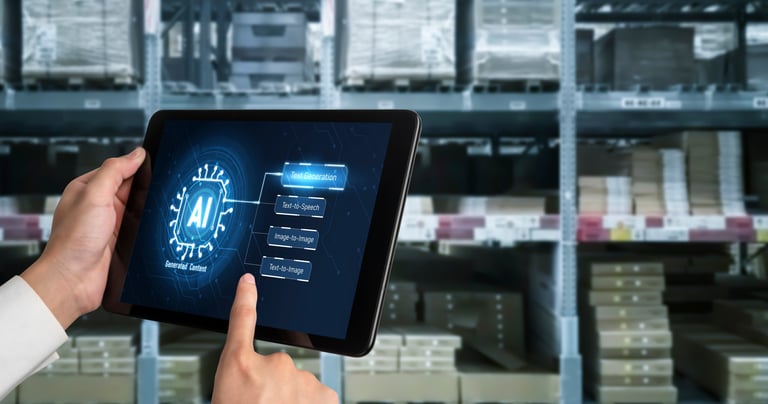
AI Revolutionizing Logistics and Supply Chain Management

The integration of AI in logistics and supply chain management is not just a trend—it's a revolution transforming the transportation industry, enhancing efficiency, and driving innovation across all verticals.
The Impact of AI on Logistics Efficiency
Artificial Intelligence (AI) is fundamentally reshaping the logistics and transportation industry. By optimizing route planning, reducing fuel consumption, and enhancing delivery accuracy, AI is significantly improving logistics efficiency. AI-enabled systems can analyze vast amounts of data in real-time to make informed decisions, thereby reducing delays and increasing overall productivity.
Moreover, AI-powered predictive maintenance can foresee potential equipment failures before they occur, allowing companies to address issues proactively. This results in fewer breakdowns and less downtime, which is crucial for maintaining a smooth and efficient supply chain.
AI-Driven Supply Chain Optimization
AI is driving supply chain optimization by automating complex processes and providing deep insights into every aspect of the supply chain. From procurement to delivery, AI algorithms can identify inefficiencies and recommend improvements, ensuring that resources are used optimally.
Machine learning models can analyze historical data to forecast demand accurately, allowing businesses to adjust their supply chain operations accordingly. This level of precision helps in reducing excess inventory, minimizing waste, and ensuring that products are available when and where they are needed.
Predictive Analytics: Anticipating Demand and Managing Inventory
Predictive analytics, powered by AI, is revolutionizing how businesses anticipate demand and manage inventory. By analyzing historical sales data, market trends, and other relevant factors, AI can predict future demand with remarkable accuracy. This allows companies to adjust their inventory levels proactively, ensuring that they can meet customer demand without overstocking.
Additionally, predictive analytics helps in identifying slow-moving items and optimizing stock levels, thereby reducing holding costs. This capability is particularly beneficial for small businesses that need to manage their resources efficiently to remain competitive.
Smart Warehousing: Automation and Robotics
Smart warehousing, driven by AI and robotics, is taking automation to the next level. Automated guided vehicles (AGVs) and robotic arms can handle repetitive tasks such as picking, packing, and sorting with high precision and speed. This not only increases operational efficiency but also reduces the risk of human error.
AI-powered warehouse management systems (WMS) can optimize storage space, manage inventory in real-time, and streamline the entire warehousing process. These systems can adapt to changing conditions and demands, ensuring that the warehouse operates at peak efficiency at all times.
Overcoming Challenges and Embracing the Future of AI in Transportation
While the benefits of AI in transportation and logistics are clear, there are challenges that need to be addressed. Data privacy and security concerns, the high cost of implementation, and the need for specialized skills are some of the hurdles companies must overcome. However, the long-term benefits of AI far outweigh these challenges.
Embracing AI technology requires a proactive approach and a willingness to invest in innovation. Businesses must stay informed about the latest advancements, invest in employee training, and collaborate with technology providers to fully leverage the potential of AI. By doing so, they can position themselves at the forefront of the transportation industry's AI revolution.

